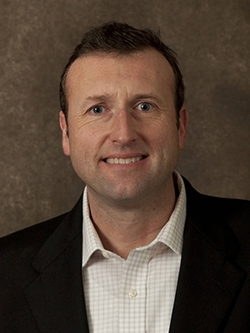
After years of working and lobbying for immigration reform, Ken Reade, associate director of the Office of Visa and Immigration Services (OVIS), can’t quite believe a comprehensive immigration reform bill reached the U.S. Congress this week.
“This is something that’s been festering for decades. But to all of a sudden just burst onto the scene—it’s amazing,” Reade says. “It is almost surreal that it has become such a huge focus.”
OVIS assists international students, researchers, visiting scholars, faculty, and professional staff seeking U.S. immigration sponsorship to come to Dartmouth. The office also coordinates permanent residence (green card) applications for international faculty and senior research and other professional staff.
The problem with the visa system today is the process can be painfully slow and there are huge backlogs for visa and green card applications, in some cases up to 10 years, says Susan Ellison, OVIS director. This doesn’t affect incoming students so much, but it can slow things down for faculty, researchers, and other professionals, and potential entrepreneurs seeking opportunities in the United States.
Academic institutions, individually and through membership in organizations such as the National Association of Foreign Student Advisers (NAFSA), have been lobbying Congress for decades to streamline the system so students, researchers, post-graduates, and others with specialized talents can come to the United States and stay here to work and train.

And while most lawmakers are sympathetic to bringing to the U.S. foreigners who can contribute talent and high-level job skills—particularly in the STEM fields of science, technology, engineering, and math—the politics of immigration reform also encompasses border security, undocumented workers, and a pathway to citizenship.
“The bottom line is they are going for all or nothing, and so, whereas our piece of things is a relatively easy fix, it’s in an overall bubbling pot of immigration reform,” Reade says.
This week, the so-called “Gang of Eight” senators, four Democrats and four Republicans, filed a comprehensive immigration-reform bill that includes a significant boost in the number of H1B visas, as well as a “path to citizenship” and increased funding for immigration enforcement and border security.
Reade has been working on this issue for more than 10 years, and has been closely monitoring this latest legislative sausage making. On behalf of NAFSA, Reade has been working with the entire New Hampshire congressional delegation, particularly the staffs of Senators Jeanne Shaheen, a Democrat, and Kelly Ayotte, a Republican. In March, NAFSA recognized his efforts on this breakthrough legislation by naming Reade the organization’s 2013 Advocate of the Year.
The strength of the message lies in dollars and cents, Reade says.
“It’s an economic issue, and sometimes that’s forgotten in the academic world. In the Tuck School of Business, for example, entrepreneurs over there really have the potential and brain power to start-up companies to bring something vital to our economy here,” he says. “But our immigration policies don’t really reflect that or make a clear path for them to do things like that.”
With waits stretching into years for training and work visas, more and more talented professionals are being lured away to other countries, he says.
“So they still have the options and they are considering offers in New York or Boston, but they are also looking at Shanghai and Mumbai and other places like that,” he says. “We’re losing market share, for lack of a better term, not just in the business world, but with researchers and other faculty members, too. A lot of other countries see the potential in bringing foreign scholars to their countries, and they are making their own immigration policies much more liberal than the U.S.”
Reade says both Shaheen and Ayotte have been very open and helpful in this process. Ayotte, as a rising Republican star with close ties to Republican Senators Lindsey Graham of South Carolina and John McCain of Arizona, two members of the Gang of Eight, has been an important contact, and Shaheen has a long history of work on immigration reform and is “extremely knowledgeable,” he says.
Still, Reade and Ellison stress that there is a long way to go. Gun-control legislation faltered at the 11th hour this week, and comprehensive immigration reform still faces some tough fights.
“It’s almost like a wish list in many ways. Very encouraging. It’s greatly streamlining the process for well-trained professionals and scholars in this country,” Reade says. “The Senate looks pretty favorable, but like most things these days, it is the House that is the great unknown.”
Still, Ellison and Reade agree, just getting this close is remarkable, particularly in light of how far the debate has come since the re-election of President Obama. Both see simple political math—the importance of the election results—as one of the drivers of change.
“But at the end of the day, regardless of the politics, it’s delightful. We’re thrilled,” Reade says.